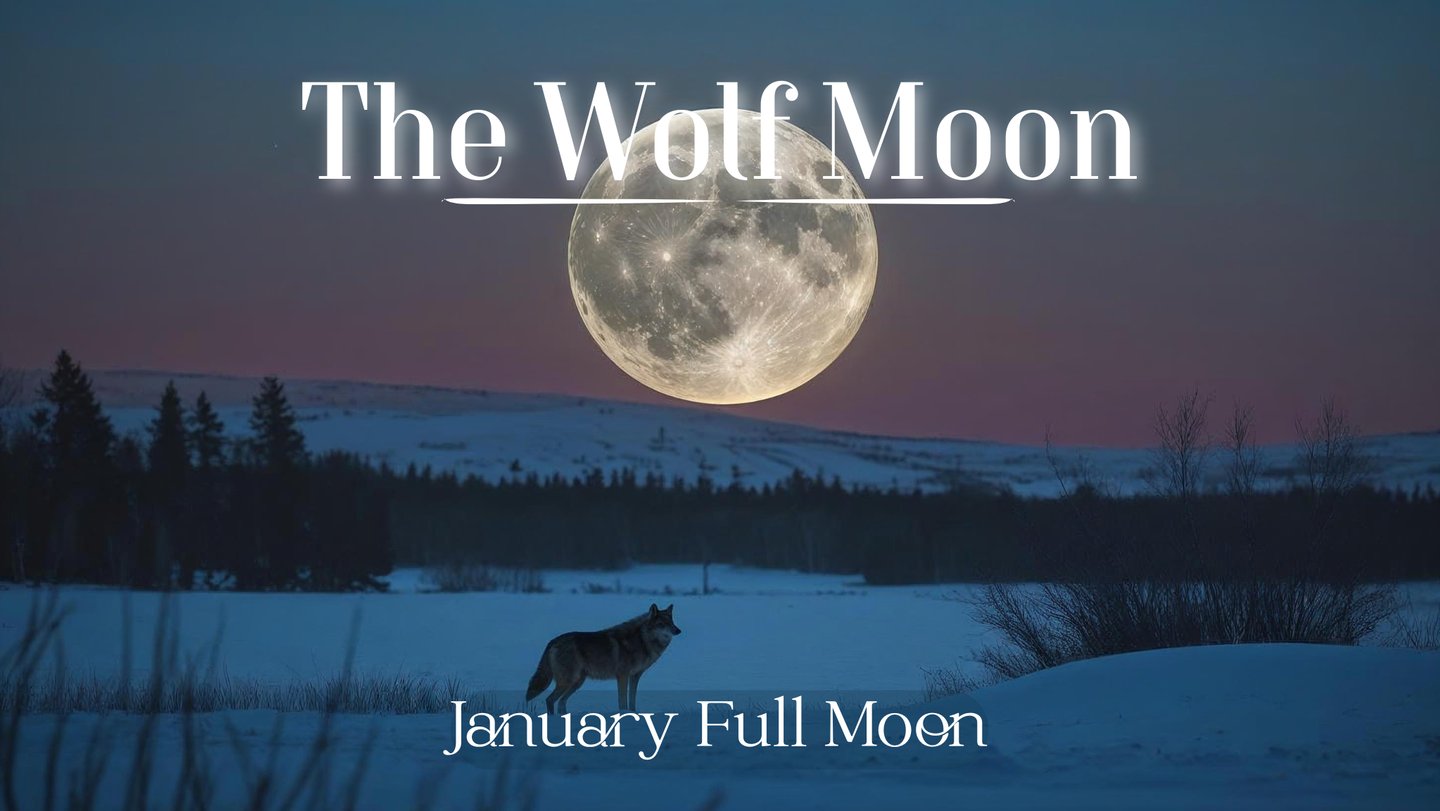Origins of the Name “Wolf Moon”
In the heart of winter, when the nights are long and the earth is cloaked in snow, the first full moon of the year rises—mysterious and wild. Known as the Wolf Moon, this lunar name echoes with ancient howls, frostbitten silence, and the quiet hunger for change.


I trust my instincts and honor my inner voice.
I am guided by ancient wisdom and wild truth.
Even in darkness, I am never alone.
The Wolf Moon howls through the stillness of winter, reminding you to trust your instincts and listen for the truths hidden beneath the surface. Let this moon guide you back to your wildness and your wisdom.
his full moon is a time for deep introspection, ancestral connection, and tuning in to your instincts. Just like the wolf, you are called to listen to your inner voice, honor your pack (family or soul circle), and prepare for a new path as the wheel of the year slowly turns.
Here are some ways to work with its energy:
Wolf Moon Ritual Ideas
Shadow Journaling: Reflect on what you’ve learned in the last year and what your spirit is truly hungry for.
Howling Ceremony: Safely and freely express your voice—literally or symbolically. This can be through singing, chanting, or writing your soul’s call.
Ancestral Altar: Light a candle for those who came before you and ask for their wisdom during the long nights.
Crystal Companions: Use obsidian, moonstone, or snowflake jasper for grounding and inner clarity.
Tarot Spread Prompt: What is my soul calling out for? What truth is ready to be heard? What must I release to find my voice?
The Wolf Moon is just one name among many across the world’s cultures:
Celtic Tradition: Called the Quiet Moon, reflecting the hush of the earth in midwinter.
Anglo-Saxon: Known as the Moon After Yule, marking the post-solstice time of deep rest.
Chinese Lunar Calendar: This moon typically falls near the 11th or 12th lunar month, close to preparations for the Lunar New Year.
Neo-Pagan/Modern Wicca: Some refer to it as the Ice Moon or Cold Moon, emphasizing the stark, reflective quality of the season.
Each name points to themes of stillness, survival, and spiritual cleansing.
Names in Other Cultures
How to Work With the Energy of the Wolf Moon
Affirmations for the Wolf Moon
Final Thoughts


The name “Wolf Moon” comes from Native American and early Colonial traditions, where each full moon was given a name to mark the rhythm of the seasons.
January’s full moon was called the Wolf Moon because wolves were often heard howling more during this time of year. Contrary to popular belief, wolves don’t howl at the moon—but in deep winter, their howls carry farther through the cold air as packs communicate across great distances in search of food or to protect their territory.
In many ways, the howling wolf became a symbol of deep survival, loyalty, and instinct, which mirrors the spiritual energy of this moon.
Next, discover February's Snow Moon, which invites stillness.
